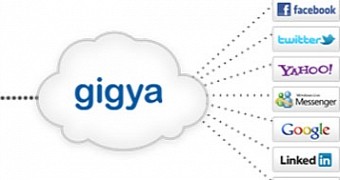Gigya, the Connected Consumer Management Suite, did a study to examine how consumers perceive and respond to privacy, personalization and social login, revealing that nowadays 77 percent of consumers use social login option, which is 45 percent more than in 2012.
That’s a huge spike in usage of social login. Even more interesting is the fact that of those who have used social login, 66 percent report using it “whenever possible” or “often,” which is nearly double than two years ago. This is proof not only that social login has become more popular, but also that sites have embraced this method instead of asking people to create separate accounts to comment or read items.
Most people, namely some 53 percent, choose to use social login simply because they don’t want to spend time filling in registration forms, while other 47 percent simply don’t want to have to remember yet another user name and password set.
Social login is on the rise
“First, we’ll continue seeing usage grow as more and more businesses adopt social login. On our platform alone, we’ve seen huge growth year-over-year. For example, in 2012, Gigya processed 500 logins and in 2013, that number jumped to well over 800 million,” Victor White, director of marketing communications, told Softpedia when asked about predictions for the future.
“We also expect to see different types of identity providers emerge and gain traction. We’re already seeing ecommerce identity providers like PayPal and Amazon enter the space and, most recently, Apple with Apple Pay. In many ways the very nature of how we think of ‘social login’ is broadening to include other types of identity providers that aren't explicitly ‘social’, per se, but that offer different types of benefits for consumers - like ease of use or high security,” he added.
The report, which is based on data collected by OnePool in July 2014 uses information from 2,000 US men and women between 18 and 55 years of age.
Nearly half of these people are concerned about how organizations handle their data and fear that they’re selling the information. Even so, while the social login phenomenon has grown, the need for privacy hasn’t lessened. Consumers are only willing to share information if they know what it is being used for and how it will benefit them.
Privacy is more important than ever
Asked whether there’s been a spike in the need for privacy when it comes to social logins and personal data following the NSA scandal, White admits that there’s been an urgency for privacy following the Snowden files, but overall, it’s not new.
“Privacy is just as important when it pertains to social login and as a result, organizations collecting consumer data have a responsibility to clearly state exactly the personal data they are asking users to share and what users will get in return. Social login solves much of this because social networks mandate that sites and apps request specific, clear permissions from users during the authentication process. We’ve found that consumers are willing to share information if they know what is being used and how it will benefit them. – In fact according to the survey, more than half of consumers report feeling more comfortable using social logins that have a clear indication of what data will be collected and how it will be used, as opposed to when they don’t receive those assurances,” White told us via email.
When faced with social logins where it wasn’t clear what their data would be used for, 84 percent of consumers admit they’ve abandoned filling out an online registration form because they weren’t happy with the amount of information that was being asked of them. Some 60 percent abandoned a purchase because it required filling out a registration form, while 43 percent of consumers have ignored future communications from companies after they were sent irrelevant information or products.

 14 DAY TRIAL //
14 DAY TRIAL //